
The story of Júhí and the child who cried lamentably beside his father’s bier. قصهی جوحی و آن کودک که پیش جنازهی پدر خویش نوحه میکرد
کودکی در پیش تابوت پدر
زار مینالید و بر میکوفت سر
A child was crying bitterly and beating his head beside his father’s coffin,
کای پدر آخر کجایت میبرند
تا ترا در زیر خاکی بسپرند
Saying, “Why, father, where are they taking you to put you under some earth?
میبرندت خانهی تنگ و زحیر
نی در او قالی و نه در وی حصیر
They are taking you to a narrow and noisome house: there is no carpet in it, nor any mat;
نی چراغی در شب و نه روز نان
نی در او بوی طعام و نه نشان
No lamp at night and no bread by day; neither smell nor sign of food is there.
نی درش معمور و نی در بام راه
نی یکی همسایه کاو باشد پناه
No door in good repair, no way to the roof; not one neighbour to be (your) refuge.
چشم تو که بوسه گاه خلق بود
چون رود در خانهی کور و کبود
Your eye, which was a place for the people’s kisses how should it go into a blind and murky house?
خانهی بیزینهار و جای تنگ
که در او نه روی میماند نه رنگ
A pitiless house and narrow room, where neither (your) face will be lasting nor (your) colour.”
زین نسق اوصاف خانه میشمرد
وز دو دیده اشک خونین میفشرد
In this manner was he enumerating the qualities of the house, whilst he wrung tears of blood from his two eyes.
گفت جوحی را پدر ای ارجمند
و الله این را خانهی ما میبرند
Júhí said to his father, “O worthy (sir), by God they are taking this (corpse) to our house.”
گفت جوحی را پدر ابله مشو
گفت ای بابا نشانیها شنو
The father said to Júhí, “Don’t be a fool!” “O papa,” said he, “hear the marks (of identity).
این نشانیها که گفت او یک به یک
خانهی ما راست بیتردید و شک
These marks which he mentioned one by one our house has them (all), without uncertainty or doubt.
نی حصیر و نه چراغ و نه طعام
نه درش معمور و نه صحن و نه بام
(It has) neither mat nor lamp nor food; neither its door is in good repair, nor its court nor its roof.”
زین نمط دارند بر خود صد نشان
لیک کی بینند آن را طاغیان
In this wise the disobedient have a hundred marks upon themselves, but how should they see them?
خانهی آن دل که ماند بیضیا
از شعاع آفتاب کبریا
The house, namely, the heart that remains unlighted by the beams of the sun of (Divine) Majesty,
تنگ و تاریک است چون جان جهود
بینوا از ذوق سلطان ودود
Is narrow and dark as the souls of Jews, (being) destitute of (spiritual) savour of the loving King.
نی در آن دل تافت نور آفتاب
نی گشاد عرصه و نه فتح باب
Neither has the light of the Sun shone into that heart, nor is there (in it any) spaciousness or opening of the door.
گور خوشتر از چنین دل مر ترا
آخر از گور دل خود برتر آ
The tomb is better for thee than a heart like this. Come now, arise from the tomb which is thy heart!
زندهای و زنده زاد ای شوخ و شنگ
دم نمیگیرد ترا زین گور تنگ
Thou art living and born of the living. O gay and winsome one, art not thou choked by this narrow tomb?
یوسف وقتی و خورشید سما
زین چه و زندان بر آ و رو نما
Thou art the Joseph of the time and the sun of heaven: arise from this pit and prison, and show thy face!
یونست در بطن ماهی پخته شد
مخلصش را نیست از تسبیح بد
Thy Jonah has been cooked in the fish’s belly: for his deliverance there is no means but glorification of God.
گر نبودی او مسیح بطن نون
حبس و زندانش بدی تا یبعثون
If he had not glorified (God), the fish’s belly would have been his gaol and prison until they shall be raised (from the dead).
او به تسبیح از تن ماهی بجست
چیست تسبیح آیت روز أ لست
Through glorification he escaped from the body of the fish. What is glorification? The sign (and token) of the Day of Alast.
گر فراموشت شد آن تسبیح جان
بشنو این تسبیحهای ماهیان
If thou hast forgotten that glorification (rendered to God) by thy spirit, hearken to the glorifications of (uttered by) those Fishes (the prophets and saints).
هر که دید الله را اللهی است
هر که دید آن بحر را آن ماهی است
Whosoever hath seen God is of God: whosoever hath seen that Sea is that Fish.
این جهان دریاست و تن ماهی و روح
یونس محجوب از نور صبوح
This world is a sea, and the body a fish, and the spirit is the Jonah debarred from the light of the dawn.
گر مسبح باشد از ماهی رهید
ور نه در وی هضم گشت و ناپدید
If it be a glorifier (of God), it is delivered from the fish; otherwise, it becomes digested therein and vanishes.
ماهیان جان در این دریا پرند
تو نمیبینی که کوری ای نژند
The spiritual Fishes abound in this sea (the world), (but) thou seest them not, for thou art blind, O miserable wretch.
بر تو خود را میزنند آن ماهیان
چشم بگشا تا ببینیشان عیان
Those Fishes are darting at thee: open thine eye, that thou mayst see them clearly.
ماهیان را گر نمیبینی پدید
گوش تو تسبیحشان آخر شنید
If thou art not seeing the Fishes plain after all, thine ear hath heard their glorification (of God).
صبر کردن جان تسبیحات تست
صبر کن کان است تسبیح درست
To practise patience is the soul of thy glorifications: have patience, for that is the true glorification.
هیچ تسبیحی ندارد آن درج
صبر کن الصبر مفتاح الفرج
No glorification hath such a (high) degree (as patience hath); have patience: patience is the key to relief (from pain).
صبر چون پول صراط آن سو بهشت
هست با هر خوب یک لالای زشت
Patience is like the bridge Sirát, (with) Paradise on the other side: with every fair (boy) there is an ugly pedagogue.
تا ز لالا میگریزی وصل نیست
ز انکه لالا را ز شاهد فصل نیست
So long as you flee from the pedagogue, there is no meeting (with the boy), because there is no parting of the handsome boy from the pedagogue.
تو چه دانی ذوق صبر ای شیشه دل
خاصه صبر از بهر آن نقش چگل
What should you know of the (sweet) savour of patience, O you of brittle heart—especially, of patience for the sake of that Beauty of Chigil?
مرد را ذوق غزا و کر و فر
مر مخنث را بود ذوقاز ذکر
A man’s delight is in campaigns (for Islam) and in the glory and pomp (of war); pathico voluptas e pene est. [A man’s delight is in campaigns (for Islam) and in the glory and pomp (of war); a (passive) catamite’s delight is from the penis.]
جز ذکر نه دین او و ذکر او
سوی اسفل برد او را فکر او
Nihil est religio et precatio ejus nisi penis: his thought has borne him down to the lowest depth. [His religion and his prayer (is) nothing but the penis: his thought has borne him down to the lowest depth. ]
گر بر آید بر فلک از وی مترس
کاو بعشق سفل آموزید درس
Though he rise to the sky, be not afraid of him, for (it is only) in love of lowness (degradation) he has studied (and gained eminence).
او بسوی سفل میراند فرس
گر چه سوی علو جنباند جرس
He gallops his horse towards lowness, albeit he rings the bell (proclaims that he is going) aloft.
از علمهای گدایان ترس چیست
کان علمها لقمهی نان را رهی است
What is there to fear from the flags of beggars? for those flags are (but) a means for (getting) a mouthful of bread.
Special Offers
by: Reza about (category: Masnavi)



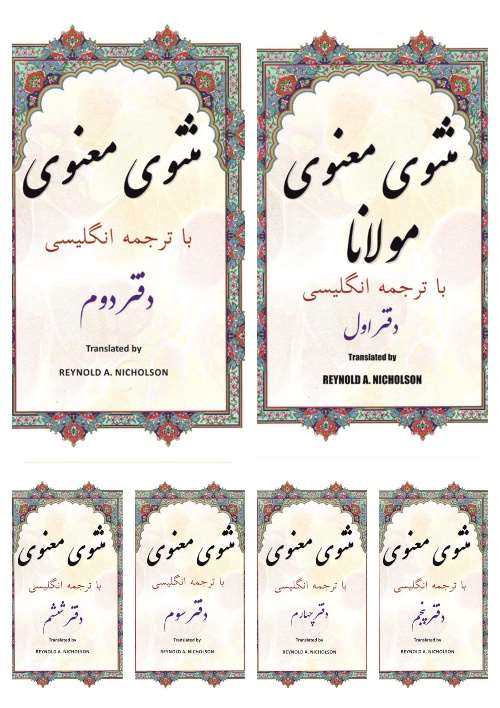
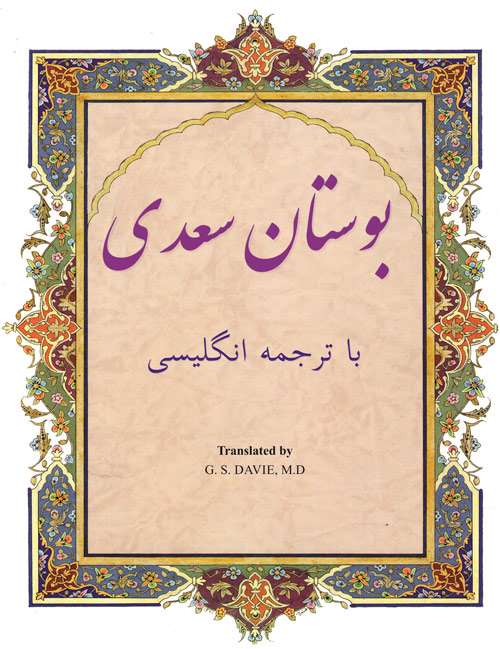

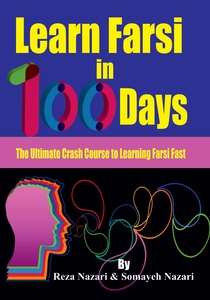






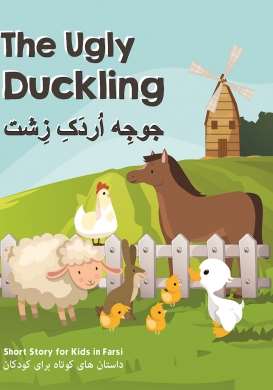
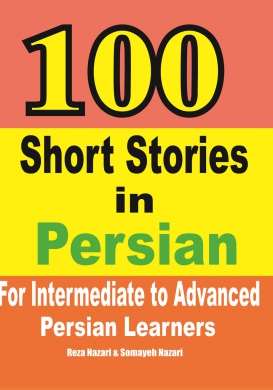

What people say about "The story of Júhí"?
No one replied yet.